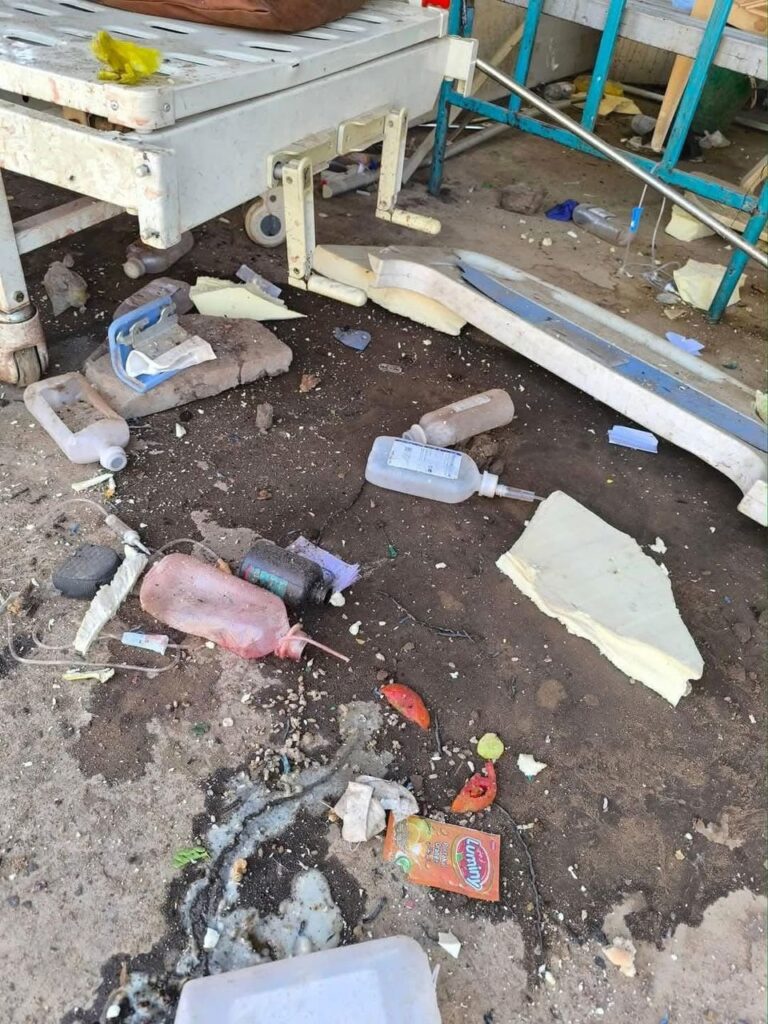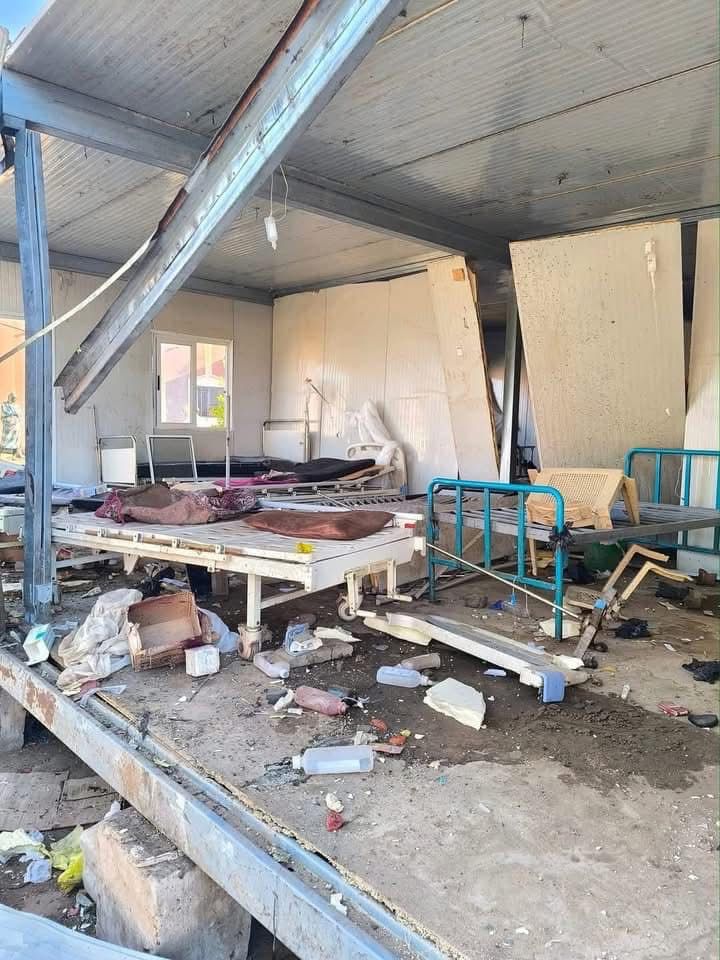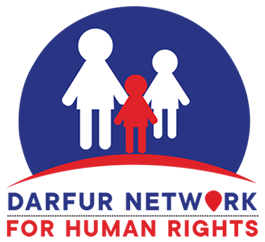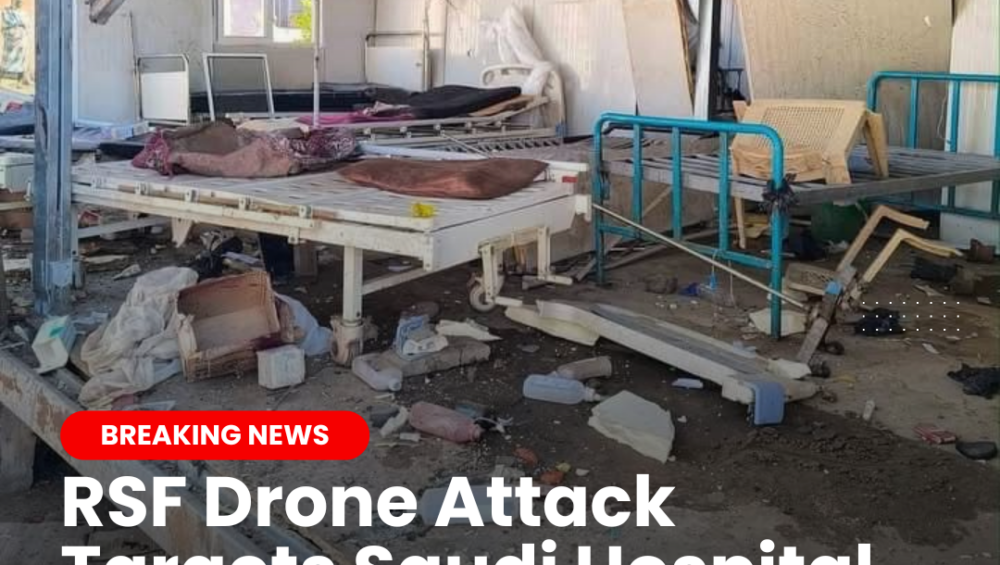On December 15, 2024, the Saudi Hospital in El Fasher, North Darfur State, became the target of a devastating attack by the Rapid Support Forces (RSF). At approximately 2:00 AM, a drone launched four guided missiles at the hospital, resulting in the tragic loss of eight lives and injuring over twenty individuals with varying degrees of severity. The assault also caused significant damage to the hospital’s infrastructure, severely impacting its ability to provide essential medical services to the community.
A Grave Violation of International Humanitarian Law
This attack marks a blatant violation of international humanitarian law, which unequivocally protects healthcare facilities and civilian lives in conflict zones. The deliberate targeting of a hospital not only endangers patients and medical staff but also undermines the fundamental principles of humanity and medical neutrality. Ensuring the safety and integrity of healthcare infrastructure is crucial in mitigating the devastating effects of armed conflicts, particularly in vulnerable regions like Darfur.
Drone Strikes Intensify Violence in El Fasher
The Saudi Hospital attack was part of a series of drone strikes carried out by the RSF in El Fasher on the same day, further escalating the violence in the region. Witnesses reported that these strikes targeted the Hai Awlad Al-Reif neighborhood, resulting in the deaths of 24 civilians, including women and children. The use of advanced drones equipped with heavy missiles inflicted maximum damage, leaving the community reeling from the brutality of the assaults.
RSF’s Contested Claims and Civilian Casualties
In the aftermath of the strikes, the RSF acknowledged responsibility, asserting that their targets were military objectives and that 35 soldiers were killed. However, the significant civilian casualties starkly contradict this justification, raising serious questions about the RSF’s accountability and the true nature of their operations. The indiscriminate or deliberate targeting of civilian areas not only violates international humanitarian law but also exacerbates the humanitarian crisis in Sudan.
Urgent Actions Required to Protect Civilians
The repeated targeting of civilian areas in Sudan highlights the urgent need for comprehensive measures to protect innocent lives and uphold international standards. The following actions are imperative:
- Civilian Protection:
Immediate measures must be implemented to ensure the safety of civilians in El Fasher and other conflict-affected areas. This includes establishing safe zones and enhancing security protocols around critical infrastructure such as hospitals and schools. - Adherence to International Humanitarian Law:
All parties involved in the conflict must prioritize the protection of civilian lives and infrastructure. This involves refraining from indiscriminate or disproportionate attacks and adhering strictly to the rules of engagement outlined in international humanitarian law. - International Action:
The global community must intensify efforts to address the escalating violence in Darfur. This includes increasing diplomatic pressure on the RSF to cease attacks on civilians, providing humanitarian support to affected populations, and holding perpetrators accountable through international legal mechanisms.
The Path Forward
The ongoing violence in Sudan, particularly the targeting of civilian areas by the RSF, underscores the critical need for robust international intervention and sustained humanitarian efforts. The international community must unite in applying pressure, delivering aid, and advocating for the protection of vulnerable populations to prevent further loss of life and alleviate the suffering of those caught in the conflict.
For more information and to support our efforts in protecting civilians in Darfur, please visit our website: https://dnhr.org/
About Us
The Darfur Network for Human Rights (DNHR) is dedicated to documenting human rights abuses, advocating for victims, and promoting accountability in conflict zones. Our mission is to ensure that violations do not go unaddressed and that the voices of the displaced and affected are heard globally.
Contact Us
For inquiries or to get involved, please reach out through our contact page.





